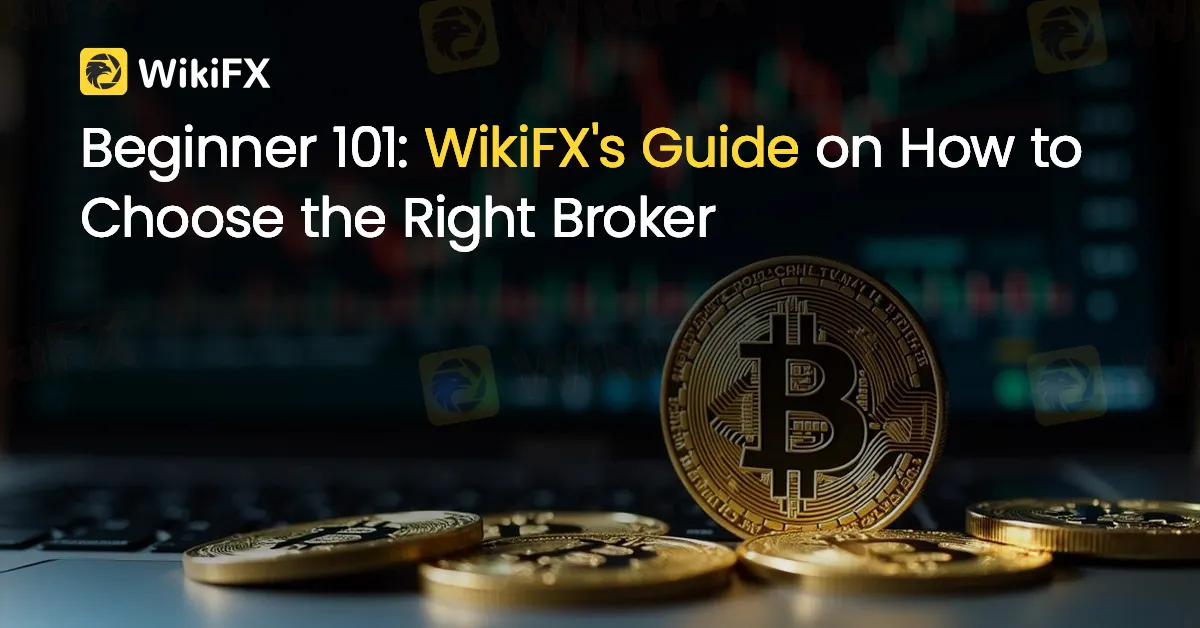Beginner 101: WikiFX’s Guide on How to Choose the Right Broker
Abstract:For new traders entering the world of forex, choosing the right broker is one of the most crucial decisions they’ll make. A reliable broker can serve as a trusted partner, providing a platform that’s secure, transparent, and regulated. However, with thousands of options available, selecting the right broker can be overwhelming. That is why WikiFX is here to make things easy for you!

For new traders entering the world of forex, choosing the right broker is one of the most crucial decisions theyll make. A reliable broker can serve as a trusted partner, providing a platform that is secure, transparent, and regulated. However, with thousands of options available, selecting the right broker can be overwhelming. Many beginners overlook essential factors, such as the regulatory status of brokers, focusing instead on promises of high leverage or low spreads. Yet, regulatory compliance should be the top priority in this search, as it safeguards traders from potential risks associated with unregulated brokers.
Regulation is a fundamental aspect that sets trustworthy brokers apart from potentially fraudulent ones. Regulated brokers must adhere to strict standards set by financial authorities, including capital requirements, client fund segregation, and regular audits, all designed to protect traders. When a broker is regulated, it means they are accountable to a regulatory body and must operate transparently. Unregulated brokers, however, operate without these safeguards, which can expose traders to financial fraud or withdrawal issues. As such, when evaluating brokers, traders should always start by confirming whether the broker is regulated by a reputable financial authority.
One invaluable resource for researching brokers is WikiFX, a regulatory query platform specifically designed to help traders make informed decisions. WikiFX provides a free, comprehensive database of over 50,000 brokers worldwide, each verified with details about regulatory status, business legitimacy, and client feedback. Through WikiFX, traders can efficiently check a broker‘s regulatory information, helping them quickly identify licensed, reputable brokers and avoid those with questionable practices. The platform’s database also includes broker ratings, trading conditions, and user reviews, giving traders a complete overview to help in making an informed decision.

Another essential factor to consider is the broker‘s transparency regarding trading fees, spreads, and leverage options. A reliable broker will clearly disclose all trading costs and ensure that clients understand the charges involved. Beginners should be wary of brokers that promise extremely low or zero trading costs, as hidden fees may apply elsewhere. Similarly, understanding the broker’s leverage policy is vital, as high leverage can be risky for inexperienced traders.
Customer service and platform reliability also play a key role in choosing a broker. Traders should evaluate the broker‘s response time, availability of support, and accessibility to avoid any disruptions in service, especially during peak trading hours. Additionally, a good broker will provide a stable trading platform with robust security features to safeguard client funds and personal information. Testing the broker’s platform using a demo account is an excellent way to familiarize oneself with the tools available and assess the platforms ease of use and reliability.
Selecting the right broker is a critical step in every trader‘s journey and requires careful consideration. Beginners should use all available resources, including WikiFX’s extensive database, to verify regulatory compliance, assess fees and platform stability, and ensure the brokers legitimacy. By choosing a broker that aligns with these essential criteria, traders can approach the forex market with confidence, knowing their funds are in safe hands. Always remember that vigilance and informed decisions are key to protecting your investments in the world of online trading.

Read more

Malaysian Trader Loses Over RM1.6 Million in Investment Scam via WeChat
A 56-year-old trader from Gombak, Malaysia, recently lost more than RM1.6 million in a sophisticated online investment scam orchestrated through the popular messaging application, WeChat.

Prop Trading vs. Algo Trading: How They Shape Modern Markets
This article will provide an overview of these two strategies, examining what sets them apart and why each has its place in today’s markets.

FCA Fines Metro Bank £16.7 Million for Lapses in Anti-Money Laundering Controls
The Financial Conduct Authority (FCA) has imposed a £16,675,200 fine on Metro Bank PLC due to critical shortcomings in its financial crime prevention systems. Between June 2016 and December 2020, Metro Bank’s inadequate transaction monitoring controls left more than 60 million transactions, valued at over £51 billion, exposed to potential money laundering risks.

Tradeweb and TSE Partnership Enhances Access to Japanese ETFs
Tradeweb and Tokyo Stock Exchange partner to improve ETF liquidity for global investors, offering streamlined access and competitive trading in Japan’s ETF market.
WikiFX Broker
Latest News
Is WesternFX a Reliable Broker?
Why Do Experienced Traders Care About Forex Spreads?
ATFX Expands LATAM Presence with New Mexico Office
CySEC Warns against Public Review Websites
Former Alameda Executives Hand Over Assets in FTX Creditor Recovery Effort
Tradeweb and TSE Partnership Enhances Access to Japanese ETFs
ThinkMarkets Expands Mobile Integration with TradingView
Binance Ordered to Unmask Account Holder in €186,000 Crypto ‘Pig Butchering’ Scam
Will Trump’s Second Term Drive Economic Growth Through Tax Cuts?
InstaForex Lucky Trader Contest
Rate Calc
